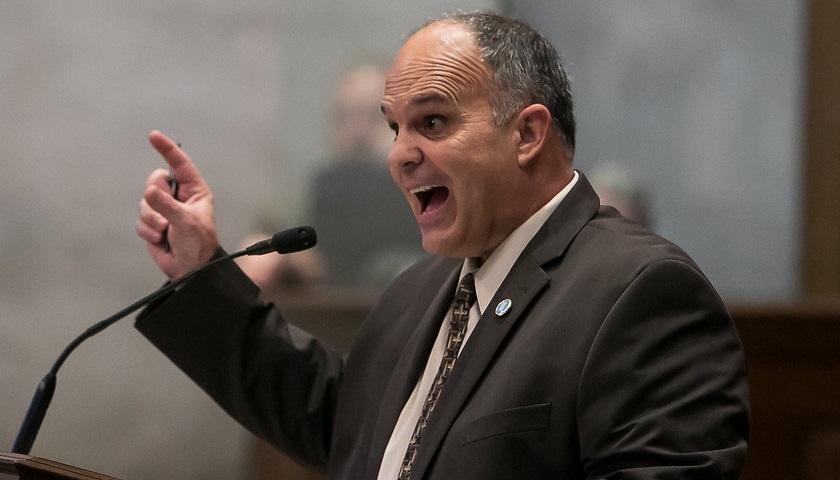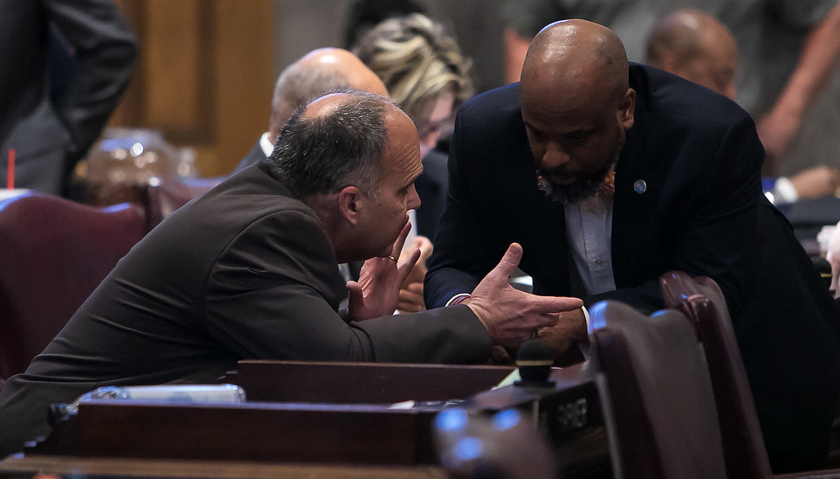The state legislature passed 513 Public Acts in the first half of the 111th General Assembly, many of which go into effect on July 1, 2019, and impact the general public like the “hands-free” driving law. The new “hands-free” law, as previously reported by The Tennessee Star, defines what it means to be “hands-free” and extends the requirement to be “hands-free” from just schools zones to all Tennessee roads and highways. In addition, a law that passed in 2017 will also be hitting Tennesseans again on July 1. Namely, the Improving Manufacturing, Public Roads and Opportunities for a Vibrant Economy – IMPROVE Act, also referred to as the 2017 Tax Cut Act, will increase the tax on gasoline by another $0.01 and the diesel tax by another $0.03 effective July 1. These are the final increases to the two fuel taxes, which went up $0.06 on gas and $0.10 which went up three times starting on July 1, 2017. The tax on Compressed Natural Gas and Liquified Gas will also go up by $0.03 each on July 1, completing the $0.08 total increase over the same three years. Meanwhile, the Hall Income Tax phase out, which was one of…
Read the full storyTag: IMPROVE Act “Tax Cut Act of 2017”
The Gas Tax Increase Goes Into Effect Today: How It Happened Despite Record State Revenues
The gas tax increase of 4 cents per gallon, which will eventually increase to 6 cents per gallon, as well as a diesel tax increase that will eventually reach 10 cents per gallon, both go into effect today, July 1, throughout Tennessee. The culprit for this tax increase is Governor Haslam’s IMPROVE Act – Improving Manufacturing, Public Roads and Opportunities for a Vibrant Economy – later renamed the Tax Cut Act of 2017. As Tennesseans are forced to pay this higher tax, it’s time to review how it happened in a state with record revenues and a billion dollar surplus. It started no later than 2015, when Governor Bill Haslam and Department of Transportation (TDOT) Commissioner John Schroer went on a taxpayer-funded six-week 15-city tour, meeting with elected officials, business leaders and chamber of commerce executives as well as “infrastructure officials and community members” creating a “need” and building support for a gas tax increase. At the time, there was a $6.1 billion backlog of road and bridge projects. Davidson and Middle Tennessee counties that ring it, were provided Resolutions to be passed by their respective legislative bodies, most often a County Commission, that urged Governor Haslam and the Tennessee…
Read the full storyFormer Lt. Gov. Ron Ramsey Says ‘There Was Some Punishment Levied Against Some House Members’ for Voting No on Gas Tax
During a press conference in Blountville, former Lt. Governor Ron Ramsey said that, “[w]hen I was in the legislature, let me assure you, actions had consequences,” as the reason why none of the new transportation funding is headed to Washington County. Ramsey summed it up this way: “There was no doubt, in the end, that there was some punishment levied against some House members on funding. Not against the Senate members, but against the House members.” For example, Ramsey said the Senate included funding for the Sullivan County Agriculture Center and East Tennessee State University, after which the House stripped away some of the funding. Rep. Timothy Hill, whose district covers Johnson County and parts of Carter and Sullivan Counties, voted against the gas tax. “Well, Timothy Hill’s district is the Ag Center. That’s one. I even made a phone call to say, ‘That this is kind of my pet project.’ It’s not up to the House members on that, but still they felt like it was time to ‘exact a pound of flesh’ was exactly the words that I heard” No TDOT projects were included for Johnson County which Hill also represents. Similarly, there were no TDOT projects listed for…
Read the full storyHaslam Bargained with Democrats and Establishment Republicans to Pass Gas Tax Increase Bill
Governor Haslam’s IMPROVE Act “Tax Cut Act of 2017” (HB 534), which includes a 6 cents per gallon gas tax increase and a 10 cents per gallon diesel tax increase phased in over three years, garnered 23 votes from Democrats and 37 establishment Republicans, which was more than sufficient to get it to pass in the Tennessee House of Representatives by a vote of 60 to 37 late Wednesday. It was a long day for State Rep. Barry “Boss” Doss, the leading co-sponsor of the bill, who spent several hours presenting the case for the bill on the floor of the House prior to the final vote. Only two Democrats, State Rep G. A. Hardaway (D-Memphis) and State Rep. John Mark Windle (D-Livingston), joined the conservative caucus of Republicans, who cast 35 votes against the IMPROVE Act “Tax Cut Act of 2017.” Rumors swirled throughout the capitol Wednesday that Governor Haslam had made a deal with the Democrats to secure their votes. Rep. Doss (R-Leoma) was seen conversing on the floor with several Democrats throughout the day, which was not, by itself, particularly unusual. More significantly, Democratic Minority Leader Craig Fitzhugh (D-Ripley) was seen accompanying administrative staffer Warren Wells to the…
Read the full story



